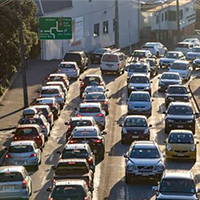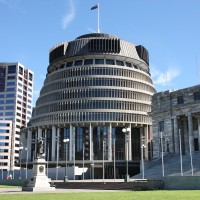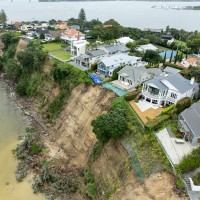The Iowa Car Crop
Many economists make international trade seem more complicated than it needs to be. Stephen Landsburg had a simple way of explaining it all. Read more

Eric Crampton is Chief Economist with the New Zealand Initiative.
He applies an economist’s lens to a broad range of policy areas, from devolution and housing policy to student loans and environmental policy. He served on Minister Twyford’s Urban Land Markets Research Group and on Minister Bishop’s Housing Economic Advisory Group.
Most recently, he has been looking at devolution to First Nations in Canada.
He is a regular columnist with Stuff and with Newsroom; his economic and policy commentary appears across most media outlets. He can also be found on Twitter at @ericcrampton.
Phone: +64 4 499 0790
Many economists make international trade seem more complicated than it needs to be. Stephen Landsburg had a simple way of explaining it all. Read more
About a quarter century ago, my to-be wife introduced me to a card game called Flux. It was popular among the computer science and engineering students in Pittsburgh. Read more
I am always glad that I am not an economic forecaster. Most people’s exposure to economists is radio or newspaper bits from bank economists making their best guesses about economic growth, the unemployment rate, or the track for interest rates. Read more
The pendulum theory of politics suggests that policies often swing from one extreme to another without finding a balanced middle ground. Consider New Zealand’s supermarkets. Read more
Imagine that you had to sell your house in a desperate hurry – Melbourne beckons, and the job there starts soon. Some things that would help the sale go ahead would be well worth doing. Read more
New Zealand’s planning processes have been breaking Wright’s Law for too long. Yesterday’s resource management reform announcement goes some way to fixing things. Read more
If for some ghastly reason you wanted to hit two birds, and you had two stones, trying to hit both birds with each stone would be pretty silly. You can throw both stones, so why not target things a bit more closely? Read more
In this episode, Eric talks to Patrick Phelps, Manager at Minerals West Coast, about the complex challenges of rural council governance including infrastructure costs, heritage regulations, and voter apathy. They discuss how small towns struggle with funding vital services across widely dispersed communities while managing political incentives that often lead to misplaced priorities and wasteful spending. Read more

It isn’t the congestion charging scheme that I would have most-preferred. But the best congestion charging scheme is the one that can get across the line and enjoy durable political support, so long as it can work. Read more

Late last year, online newsmagazine The Spinoff asked the usual suspects for their one-sentence summary of the year ahead. I stole a line from Gramsci, or at least a paraphrased version of it. Read more

New Zealand has one of the world’s most centralised governments. Centralisation has some advantages. Read more

Every student of game theory knows that madness can have its advantages. If your enemy believes you will retaliate, regardless of the cost to yourself, they may think twice before crossing you. Read more
In this episode, Eric talks to Marko Garlick about how New Zealand's local government planning and zoning regulations create anti-competitive conditions in the retail sector, particularly for supermarkets. They explore specific examples of bizarre regulatory barriers to market entry and discuss potential solutions to enable more competition, such as national policy statements and amendments to the Commerce Act. Read more

Treasury is consulting on changes to the Natural Hazards Insurance Levy – formerly known as the EQC levy. The Herald’s Jenée Tibshraeny reports that Treasury is considering increasing the Natural Hazards Commission’s cap from $345,000 to $460,000 while increasing the levy by up to $400 per year to make up the difference. Read more

Everybody knows the dice are loaded. At least according to Canadian policy analyst Leonard Cohen. Read more